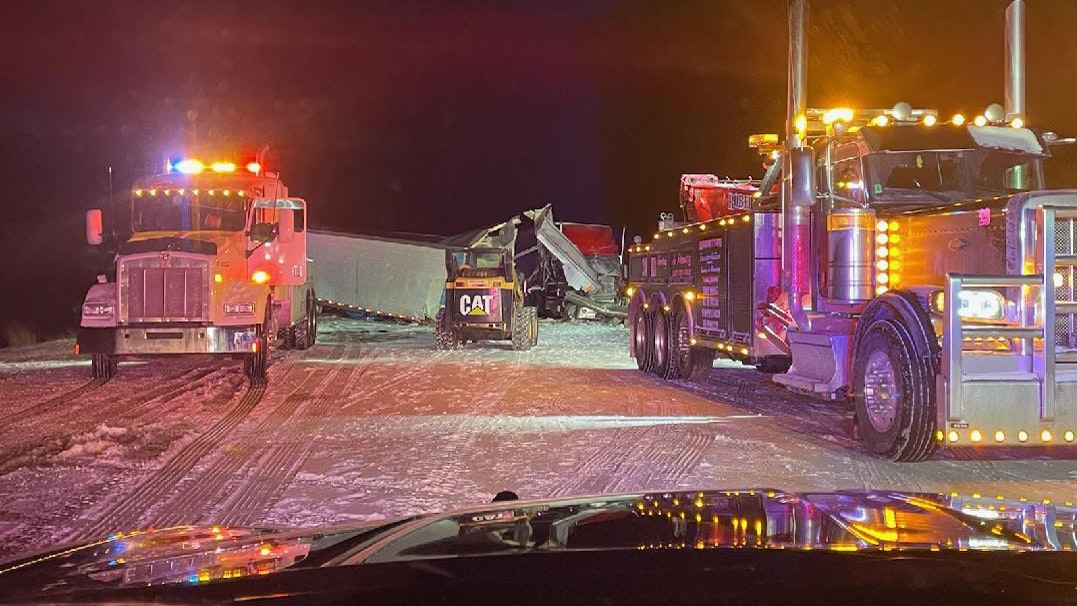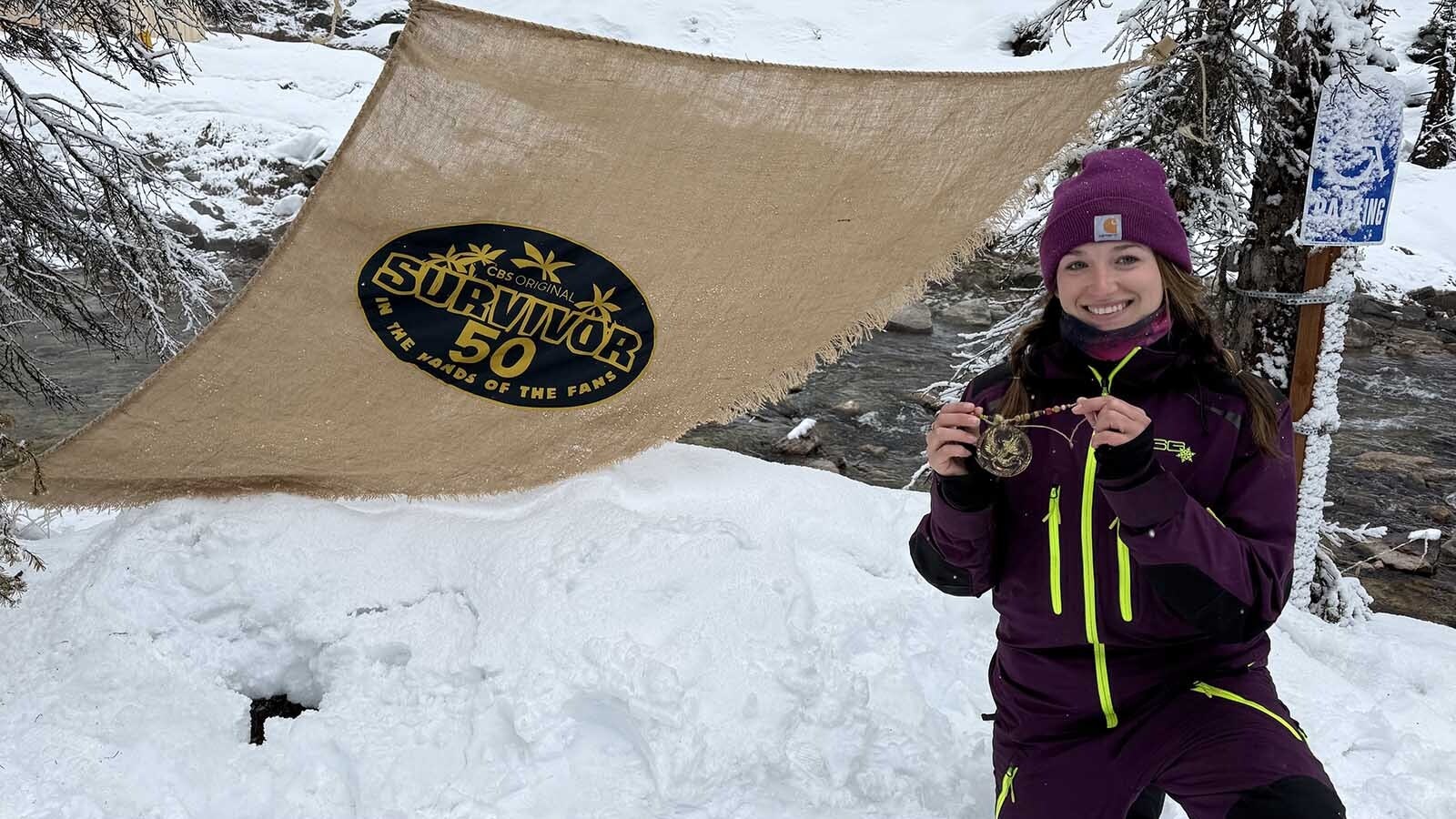Curtis Weigold recklessly sped through Douglas, Wyoming, in a stolen car like a mobster wannabe.
It was late on a Tuesday night, Sept. 18, 1934, and the 16-year-old was enthralled by the seemingly notorious and adventurous gangsters of the time.
Just four months earlier on May 23, 1934, Bonnie and Clyde famously rode infamously into a police ambush as they drove on a rural road in Louisiana. On July 22, wise guy John Dillinger made headlines by getting shot by the FBI in downtown Chicago.
As the Great Depression set in, mobsters were heroes to many, and Weigold was doing his part to emulate them. He had stolen a car in his hometown of Flandreau, South Dakota, on Monday, Sept. 17, 1934, and took off with four large-caliber pistols with him.
Flandreau, located on the banks of the Big Sioux River, was called the “Garden Spot of the Dakotas” during the Depression. Dillinger stayed at the city’s St. Vincent’s Hotel, where he planned his successful robbery of the Sioux Falls Security National Bank on March 6, 1934, which undoubtably became the talk of the town.
Now Weigold, a wiry good-looking youth with a full head of wavy hair, made his way southwest to cross the Wyoming border. He was on his way to see his girlfriend in Warm Springs, Oregon.
His gangster life had only begun.
‘Weary Of Life’
What was his motivation? Weigold would later tell police he was “weary of life with his grandparents.”
During a pit stop in Orin, Wyoming, Weigold asked for a fill up in his stolen car and then sped away when it was time to pay.
Gas station attendant Leo Trenholm called the police. When Weigold drove the 10 miles to Douglas, he blew by a waiting Converse County Sheriff William Silver and two of his deputies at 80 mph as they waited alongside the road.
They roared off after him.
Chasing gas thieves was not new for Silver and his men. Just two months earlier, Silver was hit with a spent bullet that failed to penetrate his abdomen during a gunfight with a pair of men who had stolen barrels of oil and gasoline from a bulk station in Henry, Nebraska.
The thieves, Royal Fleshman and Al Thompson of Casper, had been arrested and on Sept. 18, 1934, were in the Converse County jail awaiting trial.
With the sheriff’s car on his tail, Weigold made it just over 2 miles west of town when a vehicle driven by Frank Dewitt appeared in front of him. Harry McComb, a painter by trade, was standing on its running board. He had a wife and four children waiting for him at home.
The Casper Tribune-Herald reported what happened next.
“McComb riding on the running board was crushed as the two cars came together. Weigold sprang from the car and exchanged shots with Silver, three striking the sheriff,” the newspaper reported. “The youth, unwounded in the firing, stopped shooting, was disarmed and taken into custody by other officers.”
Silver and McComb were rushed to the hospital. Silver had bullet in his scalp and two in his hip. McComb died of his injuries.
Silver would have the bullets removed and recover.
Angry Town
When news spread in Douglas about another shooting of their sheriff, people were outraged. He was a well-respected lawman, having served as deputy sheriff for several years prior to his election.
Earlier in the year Jan. 23, 1934, Silver had lost his wife, Charlotte, in an automobile crash.
Wyoming Gov. Leslie A. Miller, visiting Casper, learned of the rumors of mob violence and ordered Natrona County deputies to go to Douglas to lend assistance. Once there, it was determined that the safest thing to do was bring the teen back to Natrona County to prevent any lynching.
Once in Casper, Weigold reportedly said “I ain’t afraid” while being booked into the Natrona County jail. He said that he “didn’t want to shoot the sheriff, but he fired at me first.”
The Casper Tribune-Herald reported a bystander’s comment to Weigold: “So, you’re Dillinger the second, eh?”
“Not me,” Weigold replied. “I just ran into some tough luck.”
On Sept. 20, 1934, Weigold was charged with first-degree murder for the death of McComb.
In Douglas, the Douglas Budget editorialized about the need for gun permits and suggested laws similar to those in New York.
“We suppose that young Weigold is a product of the worst features of our present civilization, some of which could be easily remedied. It should not be so easy for an irresponsible boy to buy firearms,” the editor wrote. “It should be necessary to have a permit before anyone could own a gun, and there should be penalties for the violation of the law. New York has a drastic law on gun toting and it gets results. Other states should enact such laws.”
Weigold pleaded guilty to a charge of manslaughter in the death of McComb. He was sentenced to 1-20 years and sent to the Wyoming Industrial Institute for boys in Worland.
Even after all that, reformation was not on his agenda.

Parole-Seeker
In April 1936, Weigold sought parole. When Sheriff Silver was asked to provide a recommendation for parole for the 17-year-old, he refused.
Just four months later in August 1936, Weigold escaped from Worland by stealing a state-owned black 1936 Oldsmobile and headed to South Dakota. Once in the Mount Rushmore State, he had to ditch the car. While he was hitchhiking toward Pierre, South Dakota, he stuck out his thumb.
One more time the teen, described as a “loud talker” by Wyoming authorities, had some tough luck. The man who pulled over happened to be George McCoy, superintendent of the South Dakota Justice Department.
And McCoy had been looking for him.
On his return to Wyoming, Weigold was sent to the state prison in Rawlins.
After serving four more years there, Weigold was granted clemency in 1939. Weigold was turned over to federal authorities for his actions escaping from Worland and taking a stolen car across state lines.
On Nov. 3, 1939, he pleaded guilty in Cheyenne federal court to stealing the car. Weigold apparently received little or no time, because on Oct. 16, 1940, the 22-year-old was living in Los Angeles with his aunt Lena Bigelow and working for Vega Airplane Co. in Burbank, a subsidiary of Lockheed. That information is gleaned from his draft card registration.
Meanwhile in 1938, Sheriff Silver would be shot again Sept. 29 when serving an eviction notice on a Lost Springs rancher. Miraculously, he survived.
“Sheriff W.R. Silver wounded three times in five years while doing his duty was back in his office this week,” The Casper Tribune-Herald reported Oct. 21, 1938. “However, the sheriff carries in his back a bullet as a reminder of the encounter. Physicians do not plan to remove it unless complications arise.”
Silver would serve as sheriff into the 1940s.
In 1946, Weigold moved to Chicago and worked for General Motors. He married Leona Gackowski on Dec. 6, 1947. They had two sons, Curtis J. and Gregory, and daughter Bobbie. Weigold retired from General Motors in 1972 because of ill health.
After retiring, Weigold moved back to Flandreau and spent the winters in California. He died Jan. 24, 1981, in Santa Barbara, California. He is buried in Flandreau next to his wife.
On their gravestone is a phrase from Psalms 23:1: “The Lord is my shepherd.”
Silver died in 1959 of pneumonia in the Converse County Hospital at age 69. He is buried in Douglas Park Cemetery in Douglas.
Dale Killingbeck can be reached at dale@cowboystatedaily.com.









